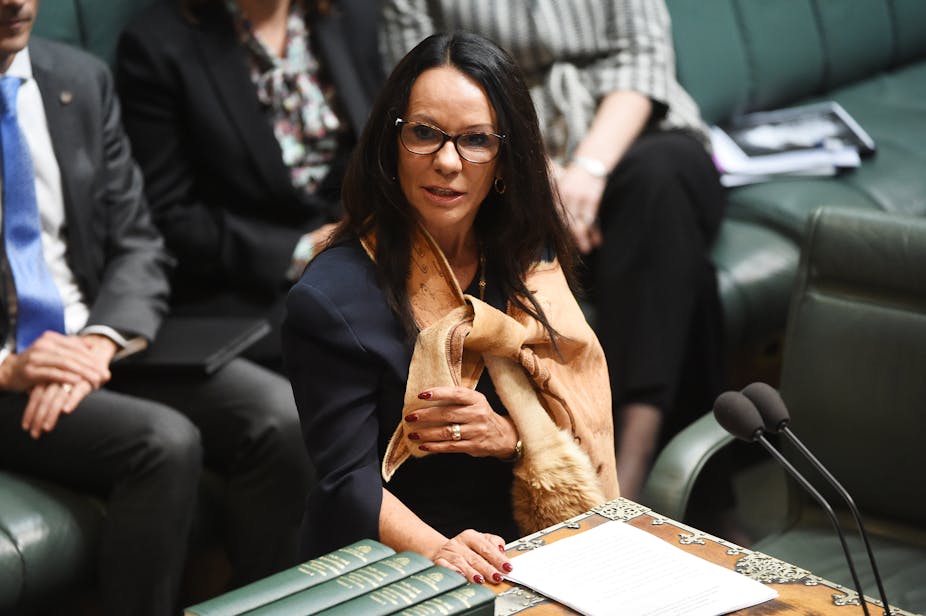New South Wales Greens MP Dawn Walker used her inaugural speech this month to argue for guaranteed Indigenous parliamentary representation. The argument for designated seats is not a new one. It was considered and rejected by the Carr state government in 1998; Indigenous people would continue to compete for democratic voice like other minority groups.
Walker’s concern is for a secure and “direct [Indigenous] voice in our democracy”. New Zealand’s Indigenous population has had this voice since 1867.
In 2017, New Zealand’s unicameral parliament has seven designated Maori seats. From 1867 to 2017, Maori have almost always had cabinet membership and a recognised capacity to influence policymaking.
In Fiji, guaranteed representation of various kinds occurred between independence in 1970 and the most recent coup in 2006. It is true that it sometimes contributed to political unrest. However, the present regime’s extreme of no guaranteed Indigenous representation at all is among the variables helping to create Fiji’s seemingly irresolvable political instability.
In Norway, there is a distinctive Sami parliament. Its consultation agreement with the national parliament recognises the particular character of indigenous people’s citizenship. It does not eliminate political differences with the state, but it does provide a path to agreement on most of the 40 to 50 legislative measures on which it facilitates consultation each year.
The question of guaranteed Indigenous parliamentary representation is especially timely as Australia considers the argument that treaties, rather than a constitutional statement, might provide more substantive political recognition.
However, treaties require that Indigenous people acknowledge the legitimacy of the state. Indigenous people need to determine the conditions under which they might provide that acknowledgement. They may, for example, want a more inclusive state; one that recognises a substantive and meaningful citizenship.
Guaranteed parliamentary representation responds to colonialism’s present as well as its past. Colonisation was not a single event “done” to Indigenous peoples. It is a political system under which justice cannot occur and its essential rationale is exclusive. Designated seats in parliament are a step towards inclusivity.
Treaties look to a post-colonial future. They require societies to describe in real terms, not just in the abstract, what a fair and reasonable political community would entail. They presume Indigenous voice. They require recognition that colonialism gives Indigenous peoples a shared and distinctive political history; a voice that cannot always be effectively expressed by other people.
The mining lobby’s call for restrictions on native title is a contemporary example. It is a point that concerns Indigenous peoples only because their relationships with the state are uniquely colonial. These are relationships that do not concern other citizens for the same reasons or in the same ways.
Recognising difference allows liberal political communities to extend their concern for individual rights to Indigenous people as much as they extend them to anyone else. Individual identity is shaped by culture and communal relationships.
Governments are increasingly recognising that Indigenous exclusion from the policy process is among the reasons for sustained policy failure. Guaranteed representation reduces the distance between policymakers and the people for whom policy is made.
The argument remains even as Australian political parties are exploring ways of increasing the number of Indigenous people preselected as party candidates. For example, federal Labor MP Linda Burney, who is Indigenous, explains that her party is trying to identify and remove structural obstacles to preselection.
It is a concession to the possibility that racism exists within the party itself. However, parties would also need to set aside the fact that they have no electoral incentive to court Indigenous votes. There are simply not enough of them. Designated seats would create an incentive to compete for Indigenous support.
Australia’s democracy is not well equipped to consider the implications of prior occupancy, culture or colonial legacy. Democratic structure determines whether public decisions are the outcome of an inclusive political process. It determines whether people have had equal opportunities to contribute to decision-making, and it is reasonable to expect Indigenous people to require some benefit in return for recognising the legitimacy of the state.
Guaranteed parliamentary representation is not the only mechanism for ensuring Indigenous political voice. It may not, ultimately, be one that Indigenous Australians choose to pursue. However, it is one that has served New Zealand Maori well for 150 years, and is worth considering in response to John Rawls’ argument that:
The unity of society and the allegiance of its citizens to their common institutions rest not on their espousing one rational conception of the good, but on an agreement as to what is just for free and equal moral persons with different and opposing conceptions of the good.

